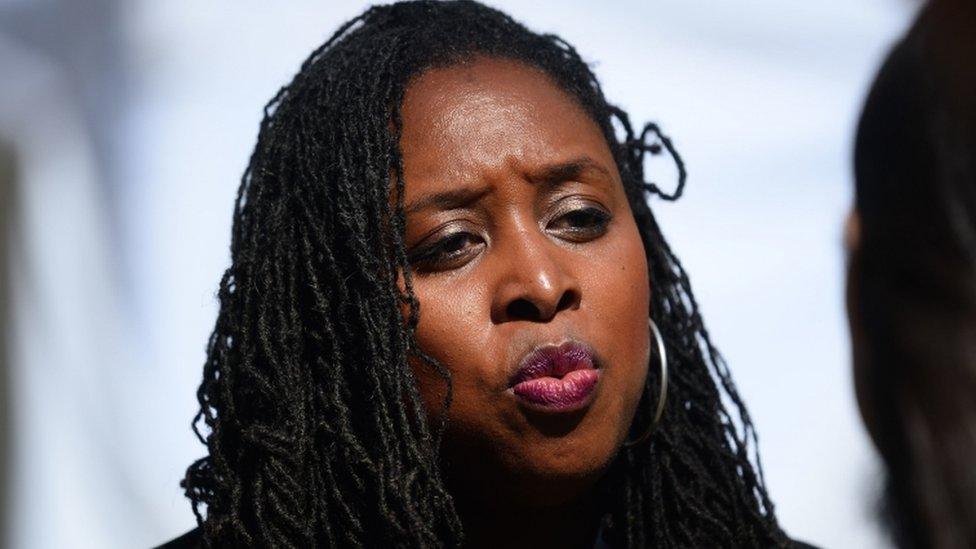Labour conference: Menopausal women 'should get flexible work hours'
- Published

Dawn Butler will announce her plans at the conference later
Large employers would be forced to provide flexible hours to women experiencing the menopause under Labour plans to end stigma in the workplace.
Shadow equalities minister Dawn Butler announced the "bold" policy as the party's conference starts in Brighton.
Other proposals to be discussed include expanding GP training, transport and Labour's stance on Brexit.
But the opening of the conference was overshadowed by a row over a bid to get rid of Tom Watson's deputy leader role.
Under Ms Butler's plans, companies with more than 250 employees would also be required to train managers on the effects of the menopause so they can accommodate the needs of employees.
She said: "Together we must end the stigma and ensure that no woman is put at a disadvantage, from menstruation to menopause."
Three in five menopausal women between the ages of 45 and 55 say it has a negative impact on them at work, according to the Chartered Institute of Personnel and Development.
"Symptoms of the menopause can be aggravated by working conditions, but can be alleviated to some extent by simple but effective adjustments to the working environment or working practices," said Paddy Lillis, the general secretary of the Union of Shop, Distributive and Allied Workers.
Usdaw - whose own survey found that more than half of menopausal women did not feel able to approach their managers about their symptoms - welcomed the Labour plans.
"We very much welcome Labour's recognition that the menopause is an increasingly relevant issue for workers, as the proportion of older women in the workplace rises," said Mr Lillis.
Menopause: what are the symptoms and why does it happen?
Labour's plans would also require large employers to ensure absence procedures are flexible and treat menopause like a long-term fluctuating health condition.
Recommended adjustments include adequate ventilation to help alleviate hot flushes, ensuring access to cold water and flexible working hours if sleep is disturbed.
Mandy Broadbent, from Bolton, Lancashire, an ambassador to the Eve Appeal charity, said employers should be doing all they could to help women at this stage in their life.
The 56-year-old added: "It can be such a drastic change to a woman's life, no-one is prepared for it and you can end up really losing your self confidence.
"The more flexible employers can be, the more it will help women reach their potential."
Other Labour policies on women in the workplace to be announced include forcing large companies to publish action plans to close the gender pay gap, and to tackle harassment at work through the Equality Act.
- Published21 September 2019

- Published5 November 2019

- Published21 September 2019
